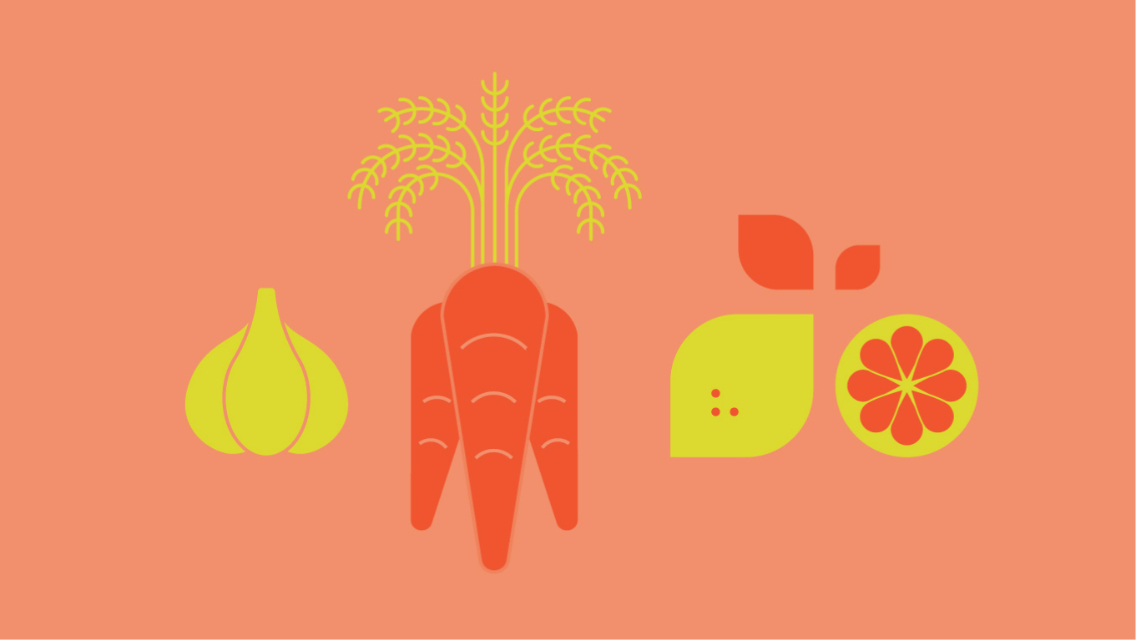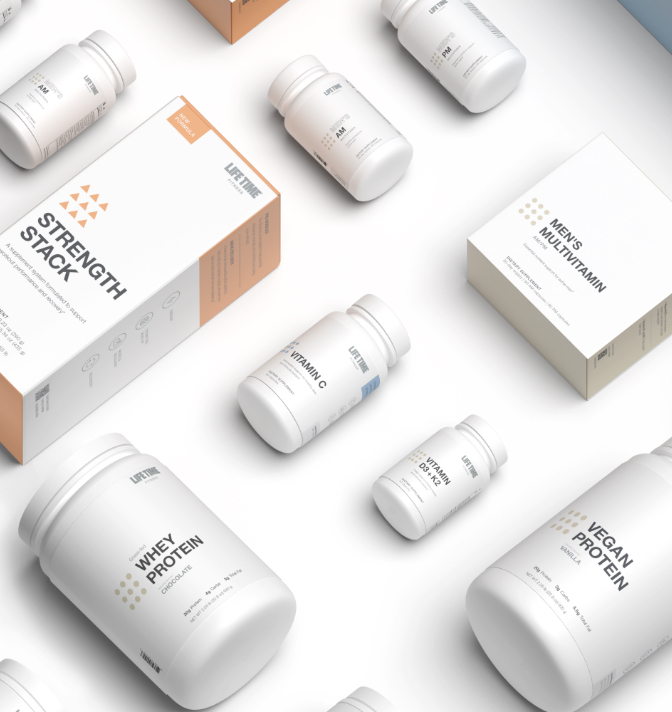The best defense when it comes to protecting our health is a good offense, so physical distancing and rigorous handwashing remain the critical first steps in defending against the COVID-19 virus. At the same time, you want your body to have the resources it needs to marshal its best immune response in an encounter with any virus. One of the key ways to build your immunity is to be well nourished: A strong nutritional baseline can help your body ward off illness — and can make your body more capable of recovery if you do get sick.
We surveyed some integrative-health experts to learn which vitamins, minerals, and foods they’re suggesting to optimize health and nutrition during the COVID-19 outbreak. These are the top five they recommend.
Vitamin C
“We can’t make our own vitamin C, [and] when we get sick, vitamin C needs to increase,” explains functional-medicine physician Terry Wahls, MD. She adds that nutritional biochemist Linus Pauling, PhD, became known for his work on the effect of vitamin C on shortening colds, and the cold is also caused by a type of coronavirus.
All the practitioners we surveyed recommended increasing daily intake of vitamin C with food and supplements. Good food sources of vitamin C include citrus fruits and brightly colored vegetables. Sauerkraut is another good source, advises Wahls, and it offers the additional benefit of supporting your gut microbiome. To supplement with vitamin C, these experts recommend anywhere between 250 mg and 1,000 mg a day. (If you get loose stools, back off a bit.)
Vitamin D
Sometimes known as the “sunshine vitamin,” vitamin D plays a critical role in immune function. Experts have even speculated that one reason we’re more vulnerable to illness in winter is that our vitamin D levels drop from lack of sunlight.
Because many of us are spending more time indoors now, and immunity is a central concern, it’s even more critical to ensure adequate vitamin D levels. Good food sources of vitamin D include salmon and tuna (including canned tuna) as well as egg yolks, especially from pastured eggs.
If you’re not presently symptomatic (see note below), supplementing can also be a supportive choice. “Studies have shown that supplementing with vitamin D can reduce colds and flu by 42 percent,” notes functional-medicine physician Mark Hyman, MD.
Wahls and Kara Parker, MD, a functional-medicine family physician, both advise adding a vitamin D3 supplement to ensure your body has an optimal level. Parker suggests at least 2,000 IU daily for adults and up to 5,000 IUs. Hyman recommends starting children at 1,000 IU.
The panel of integrative physicians strongly cautioned against supplementing with immune-activating agents like vitamin D if you develop COVID-19 symptoms. This sounds counterintuitive, but during advanced stages of viral infection the immune system can begin to attack the body’s organs — what’s called a “cytokine storm” — and vitamin D can activate the release of a cytokine protein. The panel also recommends avoiding the herbal remedies elderberry and echinacea if you get sick, for the same reason.
Vitamin A
Integrative physician Robert Rountree, MD, recommends vitamin A to support lung health, because it’s a critical nutrient for building and repairing lung tissue. Most of us can get enough from brightly colored vegetables and fruits, he says, but he recommends supplementation for anyone with lung issues.
Parker recommends everyone supplement with vitamin A right now because “it helps protect your respiratory hair cells, called cilia, that the coronavirus infects.” She suggests taking 10,000 IU daily for one week, then once or twice a week to maintain your stores. (Be careful not to oversupplement, as hypervitaminosis can occur at high levels with this vitamin.)
Zinc
This mineral is another potent immune supporter. A recent panel of integrative physicians, including Andrew Weil, MD, of the Andrew Weil Center for Integrative Medicine, has noted that “coronavirus appears to be susceptible to the viral inhibitory actions of zinc.” They’re careful to emphasize that this is a potential risk-reduction measure — not a cure — and suggest that supplementing with zinc lozenges so that you’re getting 15–30 mg a day may help protect the upper respiratory tract.
Parker and Hyman also both recommend making sure you have optimal zinc at this time. Hyman notes that oysters, red meat, and pumpkin seeds are all excellent zinc sources. Parker suggests getting 20 mg daily, taken apart from vitamin A for best absorption.
Garlic
Studies have found that fresh garlic extract has strong inhibitory effects even on antibiotic-resistant bacteria like MRSA infections. Wahls suggests that two cloves of garlic are as nutritionally potent as a cup of any other veggies; she recommends consuming extra garlic to support immunity because it helps boost natural killer immune cells.





This Post Has 0 Comments